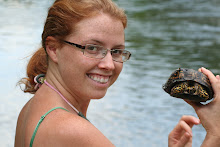 a baby girl cradled between her knees she told me that she was pregnant again. This fact alone was not enough to surprise me, but when she added that her current pregnancy was her 5th child I couldn’t decide whether to be shocked or sympathetic first. As I completed her chart with questions on current and past pregnancies and watched while the baby’s heart rate was checked I considered how to most appropriately address the subject of family planning.
a baby girl cradled between her knees she told me that she was pregnant again. This fact alone was not enough to surprise me, but when she added that her current pregnancy was her 5th child I couldn’t decide whether to be shocked or sympathetic first. As I completed her chart with questions on current and past pregnancies and watched while the baby’s heart rate was checked I considered how to most appropriately address the subject of family planning.I soon learned that she was not alone as one teenage mother after another poured through the clinic doors with their infants and toddlers. Many were unwed and carried their infants while pulling their toddlers along by the arm. While the rest of us cringed, first time mom’s discussed home
 remedies they’d heard such as washing out their infants eyes with urine. The lack of general knowledge was astounding.
remedies they’d heard such as washing out their infants eyes with urine. The lack of general knowledge was astounding.In each corner of the clinic a health worker or student met with the mothers, checked their babies, and answered questions. Sleepy babies screamed in protest when they were undressed and set on the scale and then settled down to watch from the safety of their mothers arms while their weight was charted. Simple questions about diet, eating habits, and development brought all sorts of answers. Breast feeding is the accepted norm and the mothers thought nothing of baring their breasts regardless of the gender of the person assisting them.
While the women held their babies and waited to be seen the laughter and talking could be heard from outside. Along the boat dock were twelve to fifteen boats. In each sat a brother, a boyfriend, or a husband. They had done their part by paddling the mother and child to the clinic and now they settled down to wait. Child care and family planning are not tasks deemed necessary by many Guyanese men, but rather they are left up to the woman. And so the women came: for healthy baby checks, for WIC vouchers, for prenatal exams, and for birth control tablets, injections, and condoms. And as they came, we met with each one and did our best to educate them or say something that will make a difference in their life, or the life of the child they held.


No comments:
Post a Comment